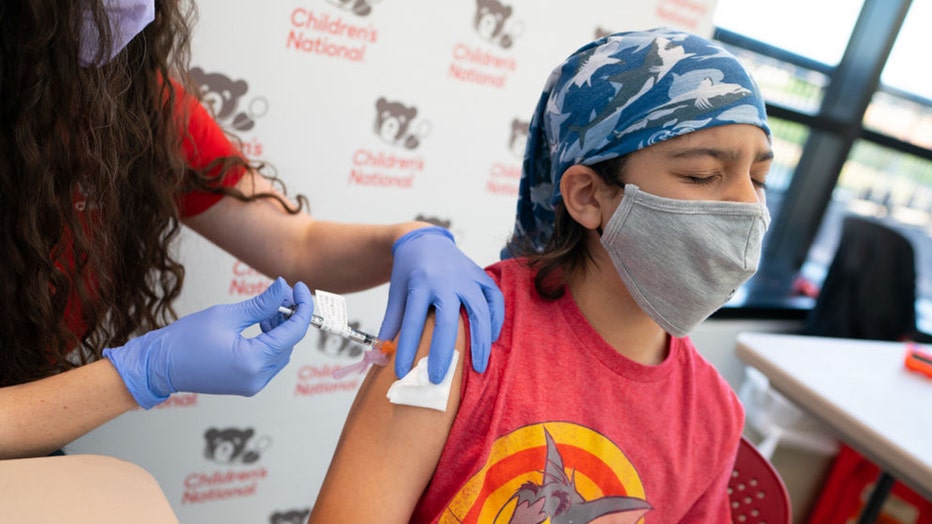CDC: Heart inflammation in young males higher than expected after COVID-19 vaccine
U.S. health officials are investigating what appears to be higher than expected reports of heart inflammation in male teens and young adults after they get a second dose of the Pfizer and Moderna vaccines.
It’s not clear if the heart inflammation is caused by the shots and the reports still are rare, according to the U.S. Centers for Disease Control and Prevention, however, the agency continues to urge everyone 12 and older get the vaccine.
As of May 31, the agency had 275 preliminary reports of such inflammation in 16- to 24-year-olds, CDC’s Dr. Tom Shimabukuro told a government vaccine meeting on Thursday.
The cases seem to occur more often in men and in younger people, and most have fully recovered, he said.

FILE - A 13-year-old boy receives a COVID_19 vaccine in Washington, D.C. on May 13.
RELATED: COVID-19 vaccine may cause heart inflammation in teens, reports find
This kind of heart inflammation can be caused by a variety of infections, including a bout of COVID-19, as well as certain medications — and there have been rare reports following other types of vaccinations.
The CDC’s vaccine advisory committee will meet on June 18 to further evaluate the possible risk.
The agency previously released in late May clinical recommendations for the management of myocarditis and pericarditis, inflammation of the heart, in vaccinated individuals following news that the agency was investigating a small number of young adults and adolescents who may have experienced heart problems after getting a vaccine.
In most cases, patients quickly improved after treatment and rest. Symptoms usually started within several days of vaccination, and more frequently occurred after the second dose.
RELATED: Teens should get COVID-19 vaccine, CDC director says, citing hospitalization rates
"CDC continues to recommend COVID-19 vaccination for everyone 12 years of age and older given the risk of COVID-19 illness and related, possibly severe complications, such as long-term health problems, hospitalization, and even death," the agency wrote.
The CDC advised reporting all such cases of heart issues post-vaccination to the country’s surveillance system, VAERS. The agency recommended that the clinicians look for symptoms like chest pain, shortness of breath and palpitation, and consider myocarditis and pericarditis as a cause, while also ruling out other causes behind heart inflammation.
"In this younger population, coronary events are less likely to be a source of these symptoms," the agency said.
FOX News and Catherine Park contributed to this report.

